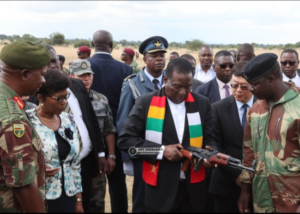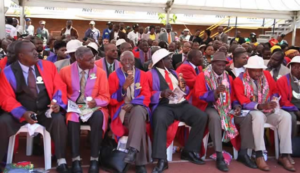CHOOSING BETWEEN CONTINUED CRISIS OR HOPEFUL CHANGE
In a sobering revelation by the World Bank, Zimbabwe currently stands at a precarious juncture, grappling with the world’s highest food price inflation. This unfortunate distinction places the nation ahead of countries like Syria, Venezuela, and North Korea, reflecting a deep-seated crisis that goes beyond mere economic mismanagement.
This alarming situation is largely attributed to the actions of the ruling party, ZANU-PF, which has been accused of various misdeeds including corruption, state paralysis, and the manipulation of the country’s legal framework. Under their governance, Zimbabwe has witnessed a significant deterioration in the quality of life, marked by skyrocketing food prices and a general neglect of public welfare.
The irony of this scenario is stark. Despite the dire state of the nation, there are indications that ZANU-PF is gearing up to retain power in the upcoming elections. This pursuit of political dominance, critics argue, could further entrench the country’s challenges, including maintaining its unfortunate lead in food price inflation and continuing the cycle of resource misappropriation and mismanagement.
Interestingly, a contrasting period in Zimbabwe’s recent history was the national government of national unity. During this time, the involvement of the opposition, lauded for its resilience, innovation, and accountability, brought a brief respite from the nation’s economic challenges. Food and basic services became more accessible, showcasing a responsive governance approach to the needs of the Zimbabwean people.
Today, Zimbabweans are faced with a critical decision. On one hand, there is the option of voter apathy or coerced support for the ruling party, a path that risks perpetuating the current state of affairs. On the other hand, there’s the choice of supporting the opposition, recognized for its commitment to transparency and responsibility. This decision is crucial in determining the future trajectory of the nation.
The ruling party’s track record of alleged mismanagement and disregard for public welfare has led to significant dissatisfaction among the populace. In contrast, the opposition has demonstrated a potential for bringing about positive change, albeit constrained by the political landscape.
As Zimbabwe approaches another pivotal moment in its political history, the stakes are incredibly high. The choice made by its citizens in the upcoming elections could either reinforce the status quo or usher in a new era of hope and reform. The need for a governance system that prioritizes the welfare of its people, ensures fair distribution of resources, and fosters economic growth has never been more acute.
Zimbabwe stands at a crossroads, and the path chosen will significantly influence its journey towards recovery or further decline. It’s a moment for reflection, decision, and action. The future of Zimbabwe hinges on the collective will of its people to envision and strive for a nation that fulfills the aspirations of all its citizens.



